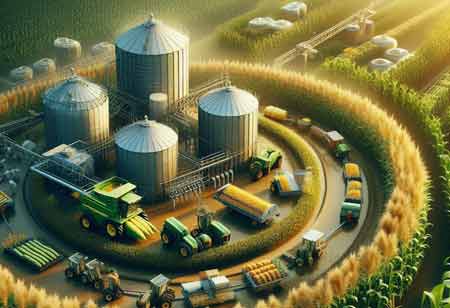

Thank you for Subscribing to Agri Business Review Weekly Brief

Over the last few years, many problems have plagued the agriculture industry, including food shortage, food safety, climate change, unstable weather, and many other factors. In this situation, blockchain technology has emerged as a solution for optimising agricultural approaches and ushering transparency and food integrity into the farming industry.
The application of intelligent contracts has paved the way for insurance agencies to streamline their claim settlement process. Blockchain technology has sped the supply chain process, allowing prompt removal of hazardous items. It has decreased human error and eliminated excessive losses and downtime.
Blockchain is a system of chain networks comprised of nodes the computers. It can record transactions, enabling transparency in the buying and selling process. Integrating blockchain in agricultural supply chain processes can enhance transactions, financing, and data monitoring. The shipping and monitoring process will enable the active tracking of machines and equipment.
"Blockchain is a developing concept in agriculture, but initial adopters are sure to experience the advantages. Although, many farmers might find it challenging to change their approach and incorporate blockchain."
Blockchain technology plays an essential role in the supply chain, especially monitoring food sources and raw materials. It reduces transaction and inventory costs through an efficient machine and crop monitoring process.
Many agricultural cooperatives are encouraging farmers to embrace sustainable practices. Blockchain offers a secure source of farm data, inventory, and contracts. Farmers can maintain the quality of their products and manage the exchange of assets. The decentralised nature of blockchain makes it ideal for inventory management.
The practical usage of blockchain in agriculture can streamline the financing of agricultural products and promote healthy competition in the sector. It will also make selling goods more straightforward by eliminating intermediaries. Since the information stored in the blockchain can't be manipulated, it facilitates clarity in production and processing.
Blockchain is a developing concept in agriculture, but initial adopters are sure to experience the advantages. Although, many farmers might find it challenging to change their approach and incorporate blockchain. Also, network connectivity issues, old technology, knowledge gaps, and other obstacles might hinder blockchain implementation, necessitating further research and innovation in this field.
